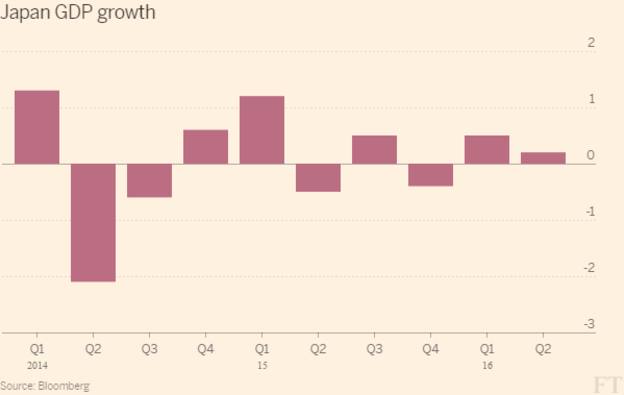
Japan's economic policies throughout 2016 have been a talking point for global markets, from initial shock and awe to an eventual appreciative respect for what the Bank of Japan has been trying to achieve.
In January, to stimulate its economy, Japan adopted an unconventional negative interest-rate policy that penalized banks for hoarding too much money.
According to Nathan Gibbs, client portfolio manager for Japanese equities at Schroders, January's move to negative interest rates came as a shock, with a resultant downturn in the equity market performance.
He comments: "The move was a major surprise to equity investors. Although such aggressive easing should be supportive for equities, any positive effect was outweighed in the short-term by the continued appreciation of the currency and a general rise in global uncertainty."
Kwok Chern-Yeh, head of Japanese equities at Aberdeen Asset Management, concurs: "The idea, as with quantitative easing (QE) experiments everywhere, was to boost lending and raise inflation expectations.
"Instead, the Bank of Japan (Bank of Japan) move simply hurt banks as their lending spreads narrowed."
The yen went down and the stock market followed suit, precipitating the Bank of Japan into "policy back-pedalling" since, he adds.
Mr Gibbs adds that the Bank of Japan taking time to "fine tune" its policies over the year has been met with a "more conventional response within the equity market, with improved performance from financial-related sectors".
Recent moves
September's focus shifted from targeting just the monetary base towards targeting the yield curve.
This seems to be attempting to alleviate what Mr Gibbs calls the "previously unforeseen adverse implications of the negative interest rate policy".
The Bank of Japan capped 10-year government bond yields at 0 per cent, and offered to buy any bonds at that price.
According to contributors to this guide, this measure has been designed to steepen the yield curve and should support bank profitability.
But whether this will have any effect in the long-term is still a matter for debate, according to Ben Willis, head of research for Whitechurch Financial Consultants.
He says: "You could argue it has done little for the economy, but it certainly has provided a support to stock markets.
"Attempts to weaken the yen may not be working as planned but this has been designed to boost large-cap exporters.
"Much of the attraction of Japanese equities is they are relatively cheap on a valuation basis but corporate earnings are key if we are to see further recovery."
Moreover, it seems to have had little discernible effect on GDP growth; the latest data suggests no clear upward trajectory although it may again be too early to tell.
Biggest investor
One of the biggest investors in Japanese equities, of course, is the Japanese central bank, being one of the most active buyers through exchange-traded funds (ETFs), primarily through instruments that track the Nikkei 225.








